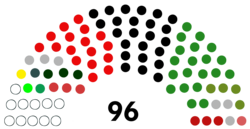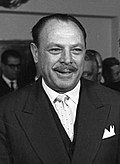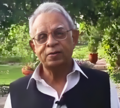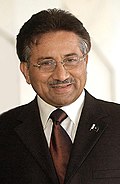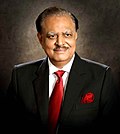- The head of state of Pakistan from independence until Pakistan became a republic in 1956 was the Pakistani monarch. For the Governor-Generals who represented them from 1947 to 1956, see Governor-General of Pakistan.
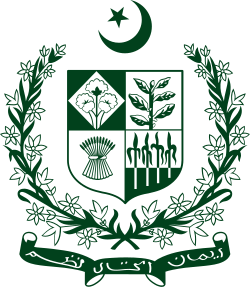 |
|---|

The president of Pakistan is the head of state of the Islamic Republic of Pakistan.
Contents
The complete list of presidents of Pakistan includes the persons sworn into the office of president following the proclamation of the Islamic Republic of Pakistan in 1956.
There have been a total of 13 presidents. The first president was Iskander Ali Mirza who assumed office on 23 March 1956. The current office holder is Asif Ali Zardari, who took office on 10 March 2024, following his victory in the 2024 election. [1]
